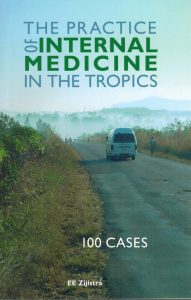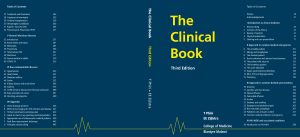Education
Teaching
Our teaching encompasses all aspects of tropical medicine, in a low-and middle income settings, as well as in a high-income setting.
Tropical medicine has changed over the years from the study of exotic diseases in a colonial setting, to internal medicine (and paediatrics) practised in a tropical environment. It typically takes into account the local epidemiology, and diagnostic and therapeutic options. Research is an essential aspect to continually improve the level of care by investigating innovative tools that are properly validated in each endemic area.
Investing in education of health workers has a major direct and lasting effect and impact on quality of care; this is particularly true for health workers in developing countries but also for those who intend to work there. Delivering an appropriate teaching programme in Tropical Medicine requires particular experience and expertise gained in a tropical environment both in the field and in hospital. The key issue is where the diagnostic process stops or deviates from that followed in resource-rich settings. The focus should therefore be on a thorough patient assessment and knowledge of the local pattern of diseases and their epidemiology. In this way, an appropriate management plan can be drawn.
Educational tools
Over the years, the RoCTM has contributed to the field of education in Tropical Medicine by a number of teaching tools. These include:
- Kala-azar in the Sudan. Epidemiological and clinical studies. E.E. Zijlstra, PhD Thesis, University of Amsterdam, 1995. ISBN 90-9007888-6
- Leishmaniasis in Sudan. AM El-Hassan, E.E. Zijlstra. Transactions of the Royal Society of Tropical Medicine and Hygiene, 2001;95:Supplement 1. ISSN 0035-9203
- The Practice of Internal Medicine in the Tropics, 100 Cases. E.E. Zijlstra. This book was published by the RoCTM in 2016 ISBN/EAN 978-90-815719-4-4

- The Post Kala-azar Dermal Leishmaniasis (PKDL) atlas. A manual for Health workers. Editors: E.E. Zijlstra (RoCTM) and J. Alvar (WHO), published by the World Health Organization, 20 September 2012. ISBN 978 92 4 150410 2
- The Clinical Book, 2nd Edition. Editors: D. Sloan, T. Phiri, E.E. Zijlstra (Editor-in-Chief). This book was published by the Department of Medicine, College of Medicine, Blantyre, Malawi, in November 2012. ISBN 9789081571920
- The Clinical Book, 3rd Edition. Editors: T. Phiri, E.E. Zijlstra (Editor-in-Chief). This book is published by the Department of Medicine, Kamuzu University of Health Sciences (formerly: College of Medicine), Blantyre, Malawi, in May 2022. ISBN/EAN 9789081571975

Recent publications
Blog
PKDL Consortium meeting Kolkata, 28-29 November 2024
The Post-kala-azar dermal leishmaniasis (PKDL) Consortium was founded in 2012; the 7th meeting was held in Kolkata, India. The Consortium aims to promote all aspects of PKDL both with
